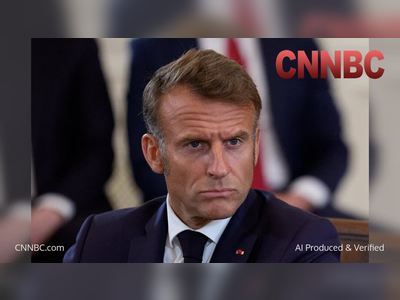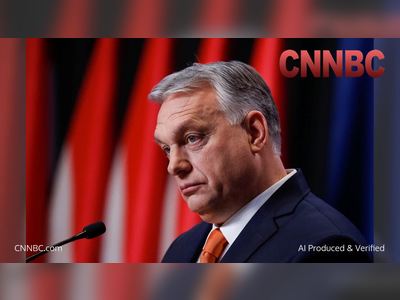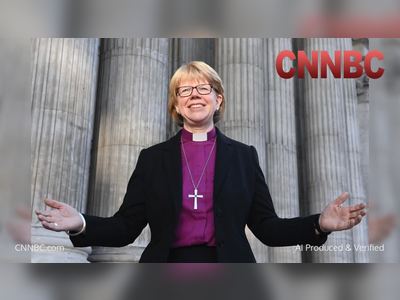Macron Faces Intensifying Pressure to Resign or Trigger New Elections Amid France’s Political Turmoil
After yet another prime ministerial collapse, former allies join calls for early exit or parliamentary reset
France’s political stability is under severe strain after the resignation of Prime Minister Sébastien Lecornu—his tenure lasting just a few hours beyond the formal announcement—compounded pressure on President Emmanuel Macron to either step down or call a snap election.
Macron, however, has publicly reaffirmed his intention to remain in office through 2027.
Lecornu’s abrupt departure followed intense difficulty in forming a viable governing coalition.
He had been appointed only on September 9, after François Bayrou’s government lost a crucial confidence vote earlier that month.
Lecornu attempted to assemble a cabinet and broker cross-party deals in a deeply fragmented National Assembly but failed to secure sufficient support.
As he resigned, Macron urged him to continue negotiations in a last-ditch effort to salvage a government.
The fallout has rattled Macron’s political base.
His first prime minister, Édouard Philippe, voiced that it was time for new leadership to resolve the impasse—urging Macron to resign or enable a fresh presidential race.
Another former loyalist, ex-prime minister Gabriel Attal, expressed frustration with Macron’s decisions, though he stopped short of demanding resignation.
Parliamentary arithmetic further complicates matters.
Macron’s centrist alliance lacks a majority, and hostile factions have rejected cooperation.
The far-right National Rally—leading recent polls—declined to engage in talk of coalition rebuilding and instead renewed its calls for dissolution of the National Assembly and fresh elections.
However, analysts warn that new elections might not yield a resolvable majority and could further entrench polarization.
Economic markets and public confidence have responded rapidly.
French equities fell sharply, and government bond yields rose amid speculations of fiscal mismanagement and looming debt pressures.
Macron’s administration confronts a practical deadline: the constitution requires a draft budget to be submitted by October 1, a task rendered exceedingly difficult in the absence of a stable government.
Many observers believe Macron now faces a stark choice: appoint a non-aligned technocrat who might navigate the crisis; dissolve parliament and gamble on a new mandate; or recognize that prolonged instability undermines his presidency.
With no clean path forward, the president’s political survival—and France’s institutional resilience—hang in the balance.
Macron, however, has publicly reaffirmed his intention to remain in office through 2027.
Lecornu’s abrupt departure followed intense difficulty in forming a viable governing coalition.
He had been appointed only on September 9, after François Bayrou’s government lost a crucial confidence vote earlier that month.
Lecornu attempted to assemble a cabinet and broker cross-party deals in a deeply fragmented National Assembly but failed to secure sufficient support.
As he resigned, Macron urged him to continue negotiations in a last-ditch effort to salvage a government.
The fallout has rattled Macron’s political base.
His first prime minister, Édouard Philippe, voiced that it was time for new leadership to resolve the impasse—urging Macron to resign or enable a fresh presidential race.
Another former loyalist, ex-prime minister Gabriel Attal, expressed frustration with Macron’s decisions, though he stopped short of demanding resignation.
Parliamentary arithmetic further complicates matters.
Macron’s centrist alliance lacks a majority, and hostile factions have rejected cooperation.
The far-right National Rally—leading recent polls—declined to engage in talk of coalition rebuilding and instead renewed its calls for dissolution of the National Assembly and fresh elections.
However, analysts warn that new elections might not yield a resolvable majority and could further entrench polarization.
Economic markets and public confidence have responded rapidly.
French equities fell sharply, and government bond yields rose amid speculations of fiscal mismanagement and looming debt pressures.
Macron’s administration confronts a practical deadline: the constitution requires a draft budget to be submitted by October 1, a task rendered exceedingly difficult in the absence of a stable government.
Many observers believe Macron now faces a stark choice: appoint a non-aligned technocrat who might navigate the crisis; dissolve parliament and gamble on a new mandate; or recognize that prolonged instability undermines his presidency.
With no clean path forward, the president’s political survival—and France’s institutional resilience—hang in the balance.











